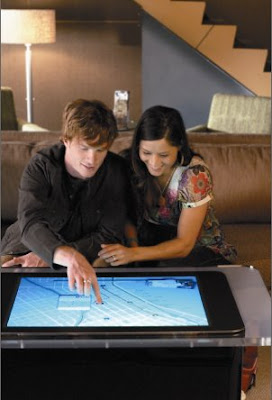Can I.T. be Green?
I decided to check back in with Dell's Ideastorm site to see the latest developments. The site is still going strong and most importantly, the customer dialogue continues.
In May, Dell announced the availability of a Linux operating system (Ubuntu) on three PC models - an offering created as a direct response to overwhelming demand on IdeaStorm (where customer submitted ideas are voted "up" or "down" - in a process made famous on Digg.com).
Most recently the conversation has steered towards environmental initiatives. Dell's customers have been asking how Dell can produce "greener" products.
And now Dell has decided to focus on this initiative.
To be fair, Dell has always promoted PC recycling efforts and has made attempts to use earth friendly components in their PCs. Michael Dell says they're one of the greenest companies in the Fortune 50. Dell supports a plant a tree program and their founder recently announced a personal commitment to match donations to this effort for the next three months.
Dell will be measuring their carbon footprint with an effort towards reducing it. And they'll be looking up and down their supply chain to hold their partners equally accountable.
Of course the reasons for "going green" are many. The Greener Computing website features an article on The Rise of The Chief Green Officer.
All this begs the question; What are YOU doing to reduce your carbon footprint within your I.T. department?
Here are some ideas:
1. For years I.T. departments have had to be careful when disposing of outdated PCs and laptops because of environmental concerns with some of the components. How about extending the life of these machines by replacing the licensed software with Ubuntu and donating the machines to schools, or charities? Giving these PCs an extended life will keep them out of landfills.
2. Do you offer everyone the ability to work from home and avoid the gas consuming commute to work? Is working from home done on an exception basis (inclement weather) or can employees do this more frequently? Could it be an option for your team?
3. Do you still have paper based processes at your work? If so, make these electronic. Once a process begins with a piece of paper, it automatically generates an environmental impact. Whether the paper gets used for a short period of time then gets tossed or whether the paper is moved around the organization for approvals, then gets filed. Electronic workflow processes dramatically reduce the environmental costs of routing, storing, archiving, shredding and disposal.
4. Hopefully, your company is already purchasing recycled paper for its printers. But have you done a print audit? If your company is using the same amount of printer paper as it was five years ago, you may not be taking advantage of the multitude of technologies which allow you to publish and subscribe (blogs and RSS feeds) or to hyperlink documents to one another or to collaborate (TeamRooms, Sharepoint, wikis) to reduce that mountain of paper we all consume each year.
5. Does your company continue to print its annual report? Why not simply put it online as a pdf document? Or offer a print on demand solution (at Lulu.com or similar site) to allow interested parties access to a printed version only as required.
6. Are you asking your employees for suggestions as to how to be a greener corporate citizen? Are you listening and acting on the suggestions?
If your company is adopting innovative solutions towards reducing its environmental impact, let me know how. I'm happy to publish your ideas.









